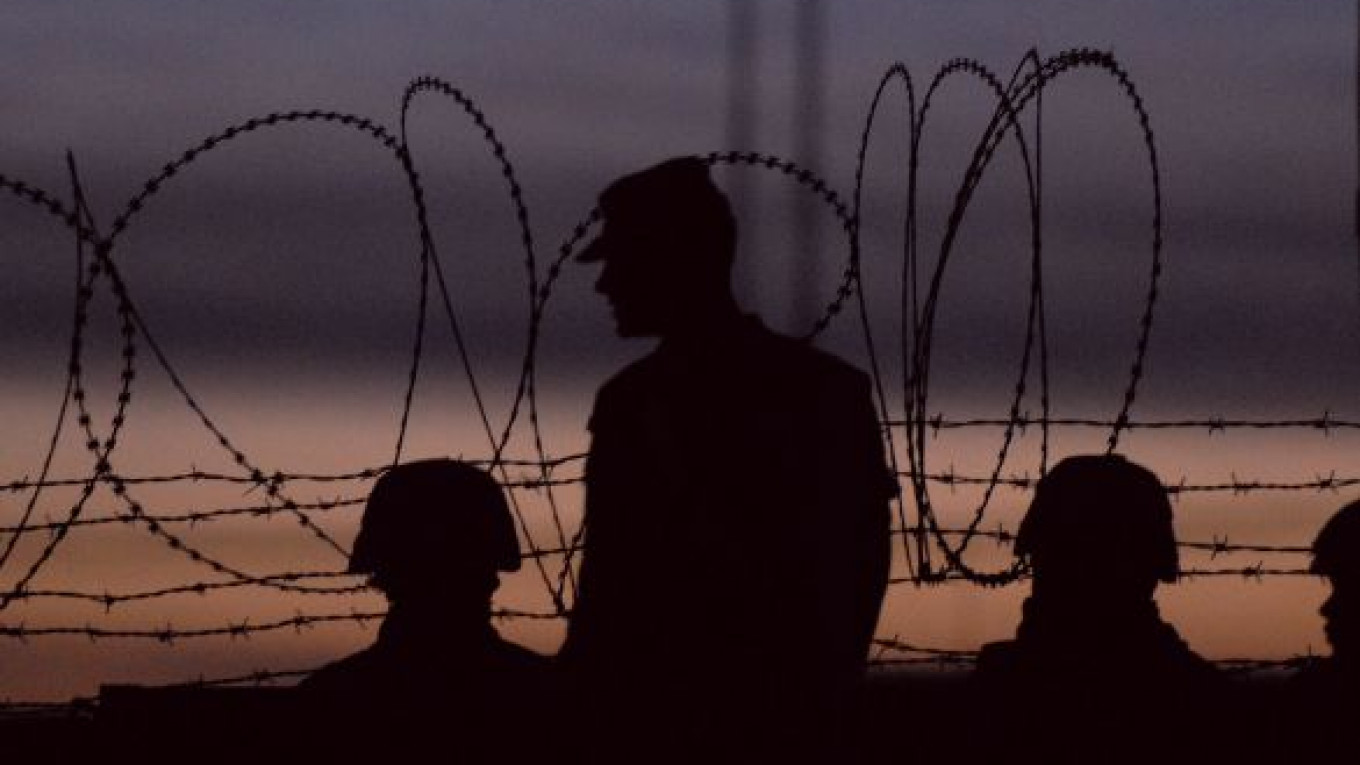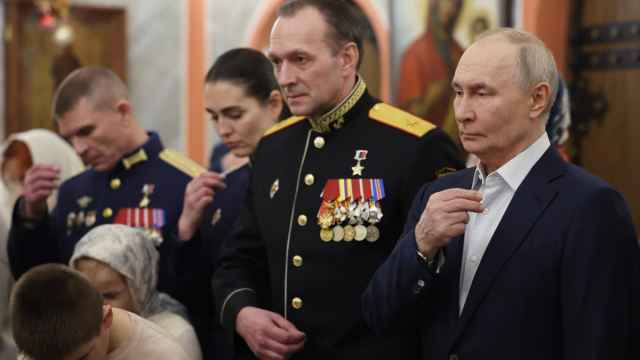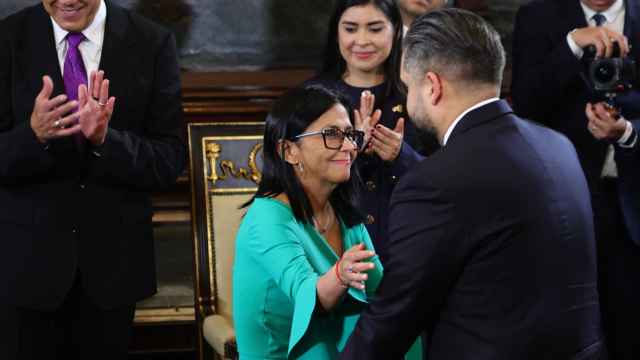KABUL, Afghanistan — A military surge in southern Afghanistan is pushing drug trafficking up into the north, where it could threaten stability in volatile Central Asia republics already dealing with Islamist militants.
Afghanistan produces about 90 percent of the world's opium used to make heroin in a thriving international trade worth an estimated $65 billion a year, according to the United Nations. It is also the world's major supplier of hashish, or cannabis resin.
Thousands of tons of the drugs are grown and processed in the Taliban strongholds of the Kandahar and Helmand provinces in southern Afghanistan, from where most has traditionally been trafficked over the borders to Pakistan and Iran.
But in 2010, Afghan and NATO-led International Security Assistance Force troops piled pressure on the Taliban and the drug production and trafficking networks linked to them, their biggest assaults in the area in a war now in its 10th year.
Increased counter-narcotics cooperation from Pakistan, meanwhile, together with tightened security along the border with Iran, further squeezed traffickers in the south and west.
"What we're finding is that a lot of the good quality trafficking groups are moving away from the threat, moving their laboratories, their transport routes, their storage locations, away from the military activity in the south, up into the north," said one Kabul-based Western official who works on drugs but is not authorized to discuss his work with the media.
Between a quarter and a third of Afghan heroin already flows over northern borders to Turkmenistan, Uzbekistan and Tajikistan. It is then smuggled through Kyrgyzstan and Kazakhstan to markets in Russia, where addiction is rife.
A surge in trafficking through Central Asia risks boosting organized crime and stoking insurgency in the five former Soviet republics that are a tinderbox of political, ethnic and religious strife, analysts say.
"What we've seen in the past is that where there is a large amount of heroin trafficking taking place, that has got the ability to destabilize government … and affect the quality of life in that region," the Western official said.
Islamist militancy is already on the rise across the largely Muslim region, where poverty, ethnic tensions and years of authoritarian rule mean governance is weak.
"These are very tribal states that are amenable to traffickers because they are poverty stricken," said Ahmed Rashid, an expert on security in Afghanistan and Central Asia and author of "Descent into Chaos" about the region's troubles.
The Afghan Taliban derive $100 million to $400 million a year in revenues levied from drug production and trafficking, according to UN data, which they spend on wages, guns, ammunition and homemade bombs for fighting Western and Afghan troops.
So while the size of any increased flows are unclear, analysts warn that drug trafficking through Central Asia could boost funding to Islamist insurgents there.
Of particular concern is the resurgent Islamic Movement of Uzbekistan, or IMU, which is active in Uzbekistan, Tajikistan, Kyrgyzstan and Afghanistan, and has stepped up attacks.
Tajikistan is seen at greatest risk.
"We would often detain Tajik nationals for smuggling drugs, and then it would turn out that they are the ones wanted by our security service as IMU militants," said Sadullo Rakhmatullayev, a spokesman for the drug enforcement agency in Tajikistan, where about 3.2 tons of smuggled Afghan drugs were seized in 2010.
"Drugs remain the main factor of instability in Central Asia. If we don't put an end to drug trafficking in this region, we will not be able to talk seriously about ever defeating extremism," he said.
Two suicide bombings, blamed on the IMU, in September added to concern that Tajikistan would fall prey to Islamist militancy. Dozens of troops have been killed by militants since then.
"Reports are that the IMU has been laying down cells in Uzbekistan and Kyrgyzstan, and that is certainly being funded by their involvement in the drug trade," said author Rashid.
Opening the tap of drug revenue would give the group greater operational independence in the region. It could also help expand and consolidate organized crime in already unstable states.
Experts say the drug trade is consolidating around some 20 to 25 criminal trafficking networks that smuggle narcotics out of Afghanistan, and haul contraband including weapons and precursor chemicals into the country in a vigorous two-way trade.
In Kyrgyzstan alone, clashes in June between Kyrgyz and Uzbeks killed 400 people, just two months after the country's President Kurmanbek Bakiyev was pushed from power in a coup.
"[The] drug trade played a key role in the events in southern Kyrgyzstan in the summer," Kyrgyz political analyst Mars Sariyev said. "I believe drug trafficking is the main destabilizing factor in Kyrgyzstan."
Vanda Felbab-Brown, a drug trafficking expert at the Brookings Institution in Washington, said she suspected Russian organized crime groups would be the main players.
"But over time you see the emergence and sometimes vertical integration of organized crime … in these countries," she said.
They are also penetrating government in areas where central authority is weak, risking undermining authority even further.
"From a long-term perspective it's very bad when a society associates with anti-state structures, when it sees its hopes are improved … by criminal non-state entities," Felbab-Brown said.
A Message from The Moscow Times:
Dear readers,
We are facing unprecedented challenges. Russia's Prosecutor General's Office has designated The Moscow Times as an "undesirable" organization, criminalizing our work and putting our staff at risk of prosecution. This follows our earlier unjust labeling as a "foreign agent."
These actions are direct attempts to silence independent journalism in Russia. The authorities claim our work "discredits the decisions of the Russian leadership." We see things differently: we strive to provide accurate, unbiased reporting on Russia.
We, the journalists of The Moscow Times, refuse to be silenced. But to continue our work, we need your help.
Your support, no matter how small, makes a world of difference. If you can, please support us monthly starting from just $2. It's quick to set up, and every contribution makes a significant impact.
By supporting The Moscow Times, you're defending open, independent journalism in the face of repression. Thank you for standing with us.
Remind me later.






